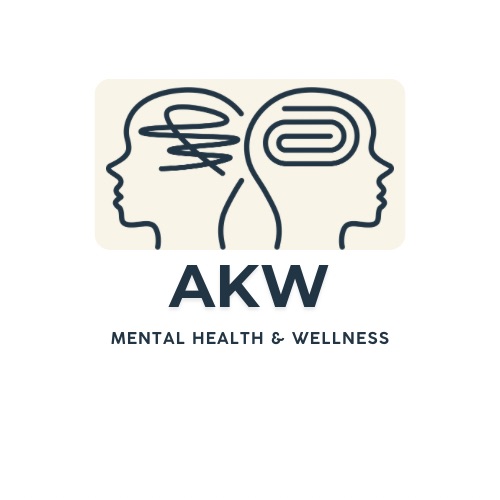
Recognizing Attention Deficit Disorder Symptoms
- Anne Dalton
- Oct 2
- 4 min read
Living with mental health challenges can feel overwhelming. When it comes to understanding attention difficulties, knowing the signs can make a big difference. I want to share some insights about recognizing symptoms that might point to attention issues. This can help you or someone you care about find the right support and care.
Understanding Attention Deficit Disorder Symptoms
Attention difficulties often show up in many ways. You might notice trouble focusing on tasks, feeling restless, or struggling to stay organized. These signs can affect daily life, work, and relationships. It’s important to remember that everyone can have moments like this, but when these feelings happen often and interfere with life, it might be time to look closer.
Some common symptoms include:
Difficulty paying attention to details or making careless mistakes.
Trouble staying focused on tasks or conversations.
Easily distracted by noises or unrelated thoughts.
Forgetfulness in daily activities like keeping appointments or remembering to pay bills.
Avoiding tasks that require sustained mental effort.
Fidgeting or feeling restless even when sitting still.
Interrupting others or having trouble waiting your turn.
These signs can appear differently in each person. For example, some might feel more restless, while others mainly struggle with focus. Recognizing these symptoms early can help you seek the right care.

How Attention Deficit Disorder Affects Daily Life
When attention challenges are present, everyday tasks can become harder. You might find it difficult to complete work projects, keep track of appointments, or manage household chores. This can lead to frustration and stress.
For example, you might start a task but quickly lose interest and move on to something else. Or you might forget important deadlines, causing problems at work or school. Social situations can also be tricky if you interrupt conversations or miss social cues.
It’s helpful to develop strategies to manage these challenges. Some practical tips include:
Using reminder apps or calendars to keep track of tasks.
Breaking big tasks into smaller, manageable steps.
Setting timers to stay focused for short periods.
Creating a quiet workspace free from distractions.
Practicing mindfulness to improve attention and reduce stress.
These small changes can make a big difference in managing symptoms and improving daily life.

What is the difference between ADD and ADHD?
You might have heard the terms ADD and ADHD used interchangeably. It’s helpful to understand what sets them apart. Attention Deficit Disorder (ADD) is an older term that mainly describes attention difficulties without hyperactivity. ADHD, or Attention Deficit Hyperactivity Disorder, includes symptoms of hyperactivity and impulsiveness along with attention problems.
In simple terms:
ADD: Mainly trouble with attention and focus, but without the hyperactive behaviors.
ADHD: Includes attention issues plus hyperactivity and impulsive actions.
Both conditions affect how the brain regulates attention and behavior. Knowing the difference can guide the right treatment and support. If you think you or a loved one might have these symptoms, a professional evaluation can provide clarity.

When to Seek Help for Attention Challenges
If you notice these symptoms affecting your life regularly, it’s a good idea to reach out for help. Early support can improve your quality of life and reduce stress. You don’t have to manage this alone.
Here are some signs it might be time to talk to a professional:
Struggling to keep up with work or school.
Feeling overwhelmed by daily tasks.
Having trouble maintaining relationships.
Experiencing low self-esteem or frustration.
Noticing symptoms lasting for several months.
A mental health provider can offer a thorough assessment and personalized care plan. They might suggest therapy, coaching, or sometimes medication to help manage symptoms. Remember, seeking help is a sign of strength and a step toward feeling better.
If you want to learn more about attention deficit disorder, AKW Wellness offers personalized and compassionate care tailored to your needs.
Supporting Yourself and Others with Attention Difficulties
Living with attention challenges means finding ways to support yourself every day. It also means understanding and patience from those around you. Here are some ways to create a supportive environment:
Communicate openly about your needs and challenges.
Set clear routines to build structure.
Celebrate small successes to stay motivated.
Encourage breaks and physical activity to reduce restlessness.
Use tools like planners, apps, or alarms to stay organized.
If you’re supporting someone else, listen without judgment and offer help with tasks when needed. Encouragement and understanding can make a big difference.
Remember, managing attention difficulties is a journey. With the right tools and support, you can thrive.
I hope this helps you feel more confident in recognizing attention deficit disorder symptoms. Taking the first step to understand is powerful. If you think you might benefit from personalized care, consider reaching out to AKW Wellness today to schedule an appointment with a trusted provider who can guide you on your path to well-being 🧠❤️🩹👩⚕️🩺









Comments